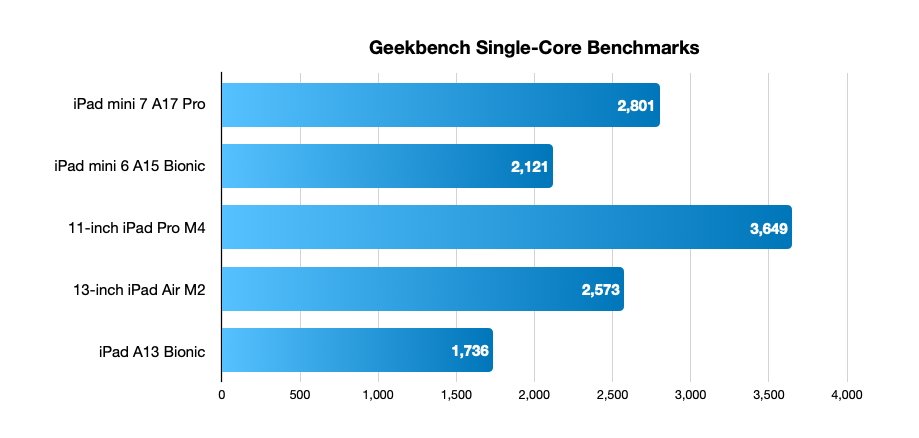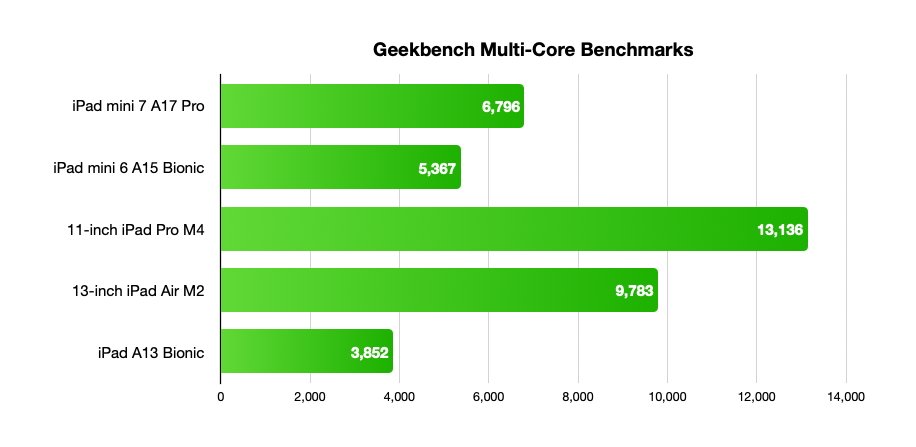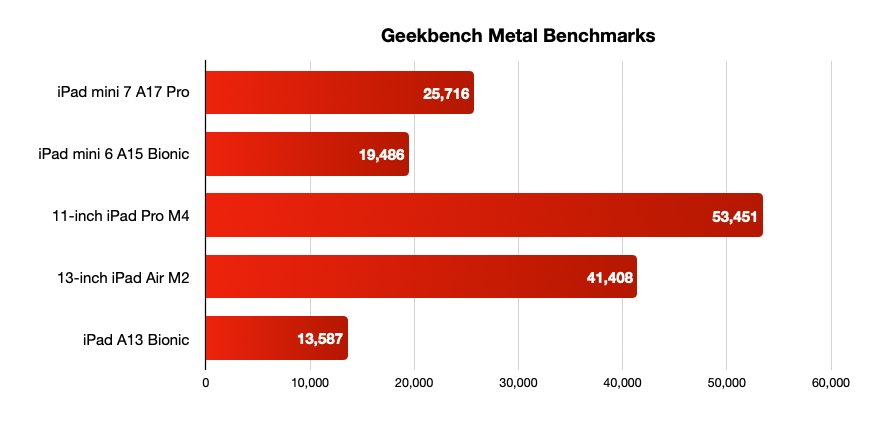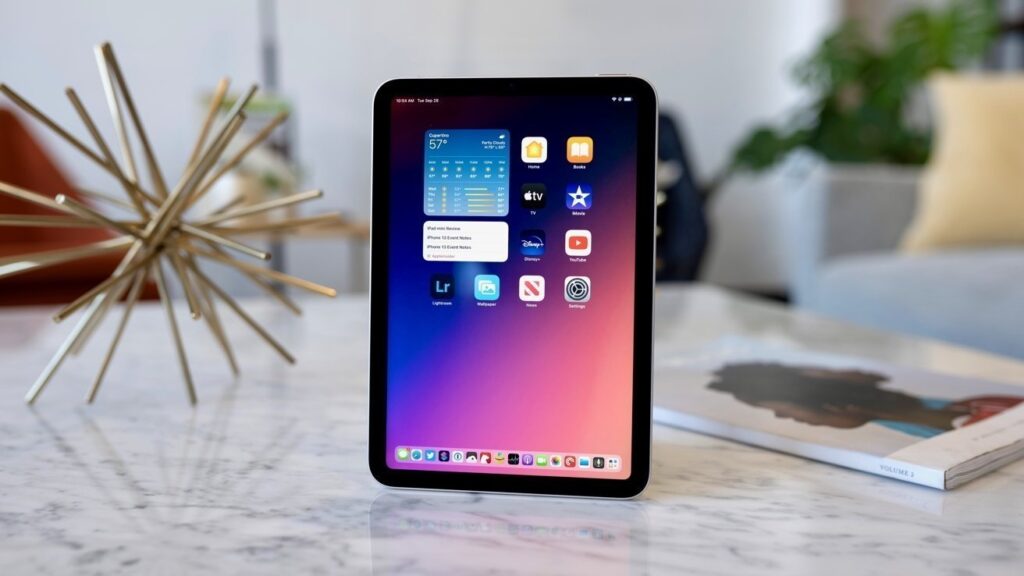Initial benchmarks for the 7th generation iPad mini have been revealed, with records showing around 30% performance improvement over its predecessor.
Apple does its own performance comparisons with previous generations at product launches, but for the actual numbers, it’s best to wait until the first public benchmarks arrive. On Friday, those first data points began to surface.
If you search the Geekbench 6 results, you’ll see that there are significant improvements when it comes to using the A17 Pro with the new iPad mini.
Apple Insider We averaged the selected results and determined a Geekbench Single Core Performance score of 2,801. For multi-core it reached 6,796.

Geekbench single core results
Both of these are improvements compared to the iPad mini 6 with A15 Bionic. The 7th generation model saw a generational improvement of 32% in single-core performance and 27% in multi-core tests.
Apple’s launch announcement states a 30% CPU improvement and a 25% GPU improvement.
The results are even more impressive when compared to an iPad running on the much older A13 Bionic. Compared to the base iPad model, the 7th generation iPad mini is 61% faster in single-core tests and 76% faster in multi-core tests.

Geekbench multicore score
When compared to more premium models, the iPad mini 7 compares favorably with the M2-powered iPad Air. In fact, it’s 9% better in single-core results, but lags at 31% when it comes to multi-core.
The iPad Pro’s M4 chip outperforms the other chips, with the A17 Pro falling behind by 23% in single-core tests and 48% in multi-core tests.

Metal Geekbench score
For Metal, the iPad mini 7’s A17 Pro’s average of 25,716 is commendable and 32% better than the iPad mini 6’s A15 Bionic. It’s also 89% faster than the base iPad’s A13 Bionic.
However, this score is still significantly lower than the M2 chip’s 41,408 score and the M4 chip’s 53,451 score.


